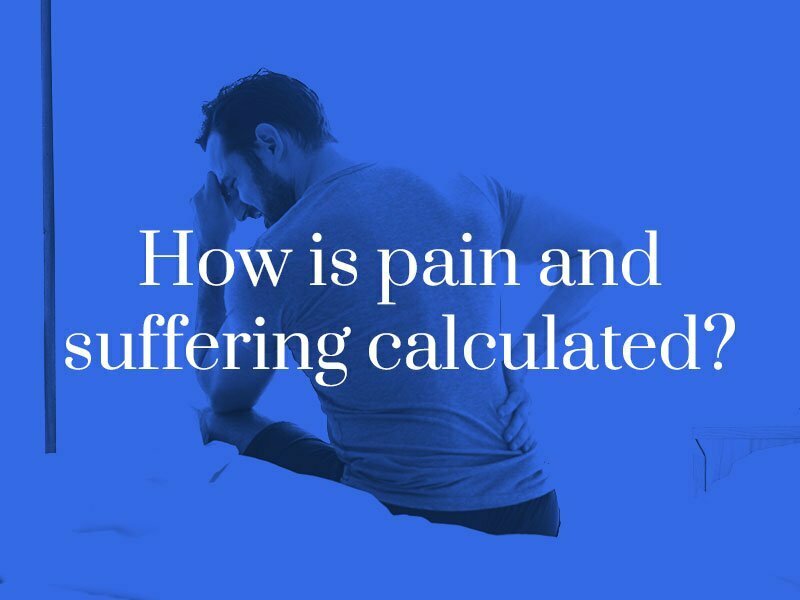Putting a price on lifelong pain and suffering is not a simple task. Two people can be involved in the same accident, suffer the same injuries, but experience more or less pain and emotional trauma than the other. For that reason, pain and suffering falls under the category of non-economic damages, meaning no precise dollar amount exists. Since there is no easy formula for calculating this type of damages, the evidence presented to an insurance company or in trial, along with the skill-level of NYC your personal injury lawyer, will dictate the amount of pain and suffering damages awarded.

Methods for Calculating Pain and Suffering Damages
Attorneys and insurance companies often use two types of multiplier method to calculate pain and suffering damages:
Multiplier Method
This is the more commonly used procedure. First, the economic damages are totaled, which can include past and future costs of medical treatment, lost wages, lost earning capacity, and property damage. That amount is then multiplied by a number typically between 1.5 and 5. The more severe the injury, the higher the multiplier.
Per Diem Approach
This method assigns a dollar amount to each day the victim suffers from the injury until they recover, oftentimes the person’s daily wages.
Attorneys and insurers are under no obligation to calculate your settlement this way. Furthermore, factors you may not expect can be considered, such as the type of doctor you are seeing and if you have or are continuing treatment based on recommendations. Insurance companies occasionally use software programs which rely on sophisticated algorithms to determine your settlement amount, which also takes into account both the type of injury and medical treatments you have and are seeking.
Factors in Calculating Pain and Suffering Damages
Various subjective factors must be considered when calculating pain and suffering. Those can include:
Whether or not the person is suffering from:
- Depression
- Post-traumatic stress disorder (PTSD)
- Anxiety
- Insomnia
- Loss of appetite
- Sexual dysfunction
Additionally, if the victim’s:
- Daily life is being altered or limited, and how.
- Relationships are being impacted.
- Injuries are lifelong, or the length of time until expected recovery.
- Life can potentially be shortened.
Injuries that are permanent or have significantly impacted a victim’s daily life will often have a higher pain and suffering value.
Loss of Enjoyment can Increase Pain and Suffering Compensation
Loss of enjoyment of life refers to the effect an injury has on a person’s ability to perform an activity they previously enjoyed. That can include limiting or completely eliminating hobbies, social events, traveling, working, volunteering, recreational activities, and more. For example, an avid tennis player suffers a spinal cord injury and is no longer able to play or they are not able to play as well. As a result, their capacity to enjoy life is diminished. Another example is cases of disfigurement. Although the pain may be gone, permanent scarring can cause a lifelong impact on a person’s ability to enjoy life.
This element of pain and suffering damages can be a prominent factor in the amount of compensation awarded. Even so, it is a subjective component just as all other factors having to do with pain and suffering are. This is why your personal injury lawyer’s knowledge, skill, and legal strategy in proving your case will significantly influence the results of your case.
We Will Get You the Outcome You Deserve
Let Sullivan Papain Block McManus Coffinas & Cannavo, P.C. alleviate you from the burden of calculating and negotiating your pain and suffering. Contact us for a free case evaluation so we may assess the value of your claim. We can be reached online or by calling (212) 732-9000.
